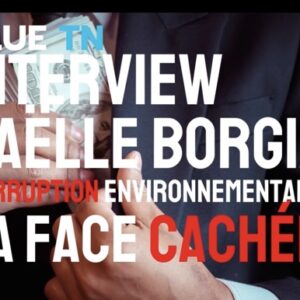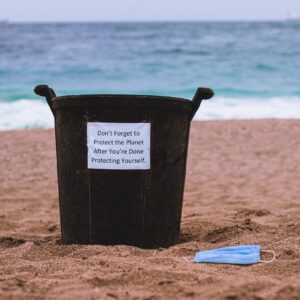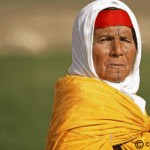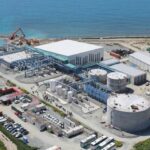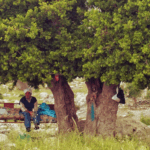Held in the heart of Chenini from October 15 to 20, this year’s JCMC Festival spanned four vibrant days. The program featured thought-provoking panels, hands-on workshops, and lively film competitions. Artists, students, civil-society groups and NGOs all marked their presence, transforming the festival into a dynamic meeting point where culture, activism and environmental awareness converged.
What Makes This Edition Special?
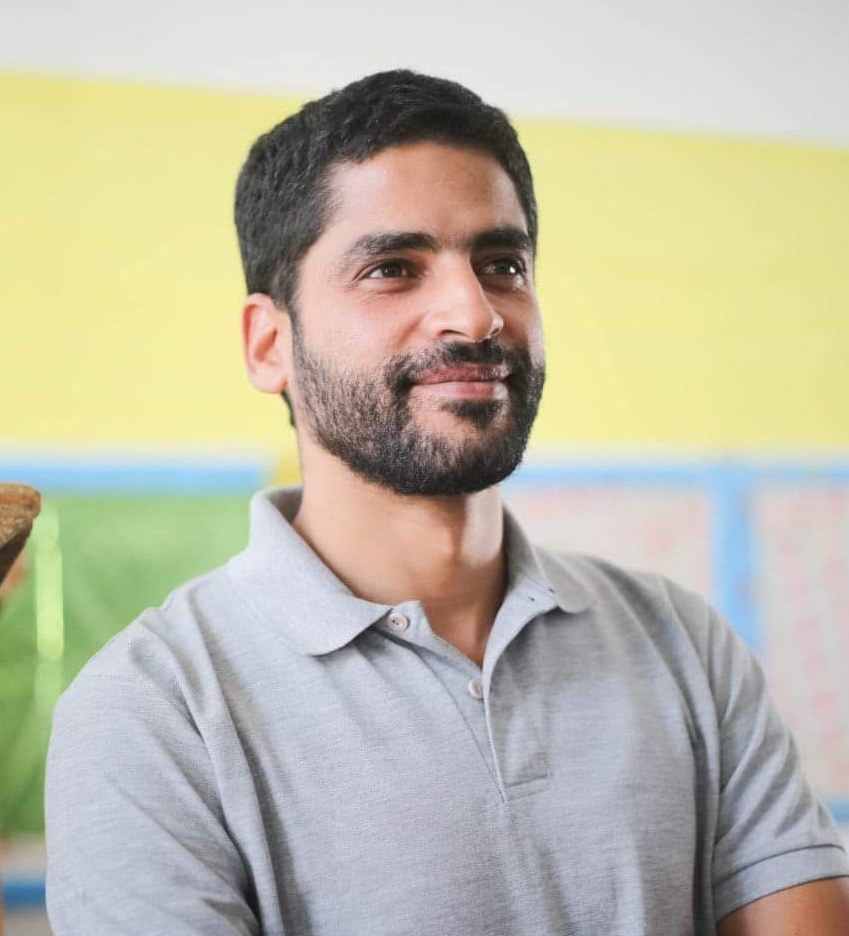
Festival director Menyar Hamdi emphasized that this 20th edition adopted an inclusive vision by welcoming a broader public beyond industry professionals. The program hosted more than 70 students from across Tunisia, along with representatives from over 30 associations and NGOs, creating an active space for learning, exchange, and collective engagement.
Throughout its previous editions, the festival has tackled diverse and impactful themes, including Cinema and Women, Cinema and Climate Change, and Cinema and Migration.
For this year’s theme, Hamdi explained that the organizing committee conducted a Facebook survey involving all participating organizations. The results highlighted a shared concern about the uncertainties facing future generations,particularly in relation to climate change, public health, and other pressing challenges. Consequently, the 2025 theme centers on safeguarding the universal right of future generations to a healthy and sustainable future.
Hamdi also stressed that the festival offers young participants a crucial opportunity to gain hands-on experience, develop new skills, and learn from experts in the field. It opens pathways,especially for those aspiring to work in the cultural and creative sectors, supporting their growth, confidence, and long-term engagement.
When Art Speaks for Environmental Justice

The festival opened with evocative artistic performances that underscored the deep connection between art and environmental advocacy. Among them was a captivating sand-drawing show that powerfully illustrated the environmental tragedy unfolding in Gabès by Hbib Alghourabi.
Grain by grain, the artist crafted a visual narrative of a city transformed,its once-thriving oases contrasted starkly with the polluted landscape left in the wake of the chemical complex. The artwork delivered a striking and uncomfortable truth, revealing not only the extent of environmental degradation but also the artist’s conviction that art carries a responsibility: to confront reality, to provoke awareness, and to stand with communities facing injustice.
Water Crisis Under the Spotlight: Experts Call for Urgent Reform
One of the highlights of the festival was the panel discussion featuring a group of experts who tackled the issue of natural resources and the environmental challenges facing Tunisia today.

Credit: JCMC
Ala Marzougui, Director of the Tunisian Water Observatory, delivered an in-depth presentation on Tunisia’s water crisis. He highlighted major risks and structural issues affecting drinking water access. His talk included key data on dams, groundwater, treatment, desalination, and rural water systems.
Marzougui stressed the urgent need for the Tunisian state to adapt to accelerating climate change and increasingly frequent extreme weather events. He underscored the importance of revising public water policies and called once again for the adoption of the long-awaited Water Code. He also emphasized the necessity of stronger coordination between civil society organizations and environmental activists in defending the right to water and the right to a healthy environment. “Water intersects with everything,” he noted. “We cannot speak of health, education, or economic development without water.”
“Water intersects with everything..We cannot speak of health, education, or economic development without water.”
Marzougui added that the Tunisian Water Observatory believes cinema and culture are essential for raising awareness about economic, social, and environmental rights. He highlighted the essential role of alternative media in this process, describing it as a key partner to civil society and to the Observatory itself. “A decade ago, the issue of water was barely discussed,” he said. “But thanks to alternative media and continuous collaboration with civil society actors, awareness has significantly grown.” He stressed that alternative media must remain a form of proximity journalism, present on the ground, documenting crises directly.
“A decade ago, the issue of water was barely discussed..But thanks to alternative media and continuous collaboration with civil society actors, awareness has significantly grown.”
He concluded by reaffirming the importance of the festival, noting that the Tunisian Water Observatory has been a partner since its very first edition, and emphasizing that continuity and collective effort are crucial to improving the country’s water situation.
Tunisia’s Struggle to Protect a Right Enshrined in Its Own Constitution

Credit JCMC
The Tunisian Forum for Economic and Social Rights (FTDES) also took part in the festival, represented by Amany Bousalahi from the Environmental and Climate Justice Department.
Bousalahi delivered a talk on the state of environmental pollution in Tunisia. She began by recalling the state’s duty to guarantee a healthy and balanced environment, as stated in Article 47 of the Tunisian Constitution. She stressed that the right to a clean environment is a constitutional right. Tunisia is also a signatory to nearly 20 international environmental agreements.
Despite this, the country ranks 37th out of 113 states in the global pollution index. Bousalahi explained that Tunisia’s pollution crisis is shaped by three main factors: wastewater, industrial pollution, and waste.
Regarding waste, she noted that Tunisia produces around 3.3 million tons of household waste each year.
Only 4% is recycled. The rest is dumped directly into nature. According to the Ministry of Environment, the country has only 13 controlled landfills. Four of them are closed, and together they offer a capacity of just 1.8 million tons. In contrast, Tunisia has nearly 3,200 informal dumps. One of the most striking figures is that the governorate of Tunis alone generates 13% of the country’s waste, around 1 kilogram per person per day.
“Tunisia produces around 3.3 million tons of household waste each year.”
Moreover, Bousalahi said that Tunisia still lacks a clear national strategy for waste management. Current efforts are limited to moving and burying waste with no long-term vision.
On wastewater, she pointed out that only 61.9% of Tunisians are connected to a sanitation network. This means 4.5 million people do not have access to basic wastewater services, according to the National Institute of Statistics. Regional disparities are significant. In Medenine, the connection rate is only 31.4%, while in Tunis and Sousse it exceeds 80%. This highlights the significant challenges of environmental justice in Tunisia.
Bousalahi concluded by highlighting the importance of FTDES’ presence at the festival. She said the organization believes in the event’s role in raising awareness about environmental and climate justice.
She also stressed the value of alternative environmental media in documenting and amplifying the concerns of communities whose rights are being violated. Such work, she said, is essential to improving Tunisia’s environmental situation.
Experts Urge Stronger Enforcement of Tunisia’s Environmental Rights
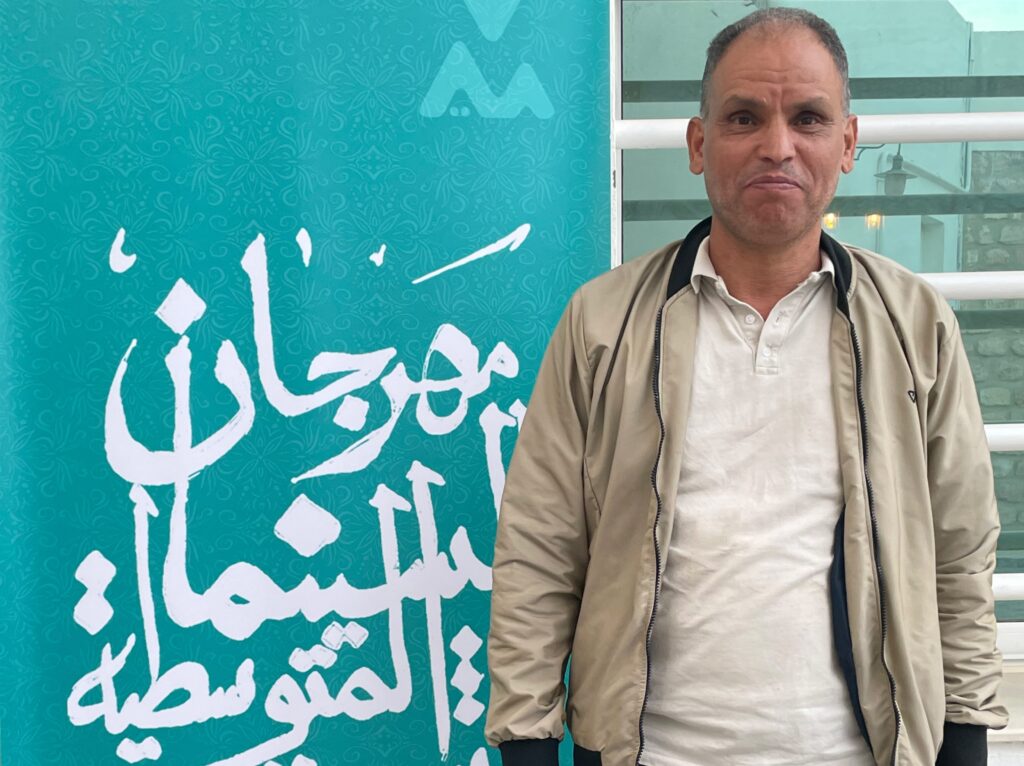
Another key intervention came from lawyer Makram Bouzayani, who addressed the legal framework surrounding the right to a healthy environment and the judicial procedures available to individuals seeking to defend this right.
Bouzayani noted that this edition of the Chenini Mediterranean Cinema Days is exceptional, especially in light of the ongoing environmental protests in Gabès. He said the festival plays an important role in raising awareness about environmental rights, environmental justice and the ecological challenges facing Tunisia.
With the strong presence of young people and students, Bouzayani described the event as a crucial opportunity to encourage citizens to understand and claim their constitutional right to a safe and healthy environment. He also highlighted the essential role of alternative media in defending environmental rights and informing the public, something, he argued, that official media outlets failed to do.
The festival featured a diverse program, where participants engaged in a dynamic flow of panels, workshops, and in-depth discussions with experts and artists. These sessions offered intensive, insightful explorations of cinema and its role in addressing pressing social and environmental issues.
This edition stood out as a particularly significant milestone, reinforcing the festival’s commitment to fostering dialogue, creativity, and activism at the intersection of art and environmental justice.
Copyright © 2025 Blue Tunisia. Tous droits réservés

